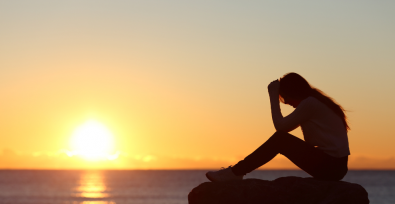Known for its luxury resorts, pristine beaches, and vibrant cultural heritage, Spain attracts millions of tourists each year. But hidden within this allure lies a harrowing secret, reports The Sun. Due to its language and location, Spain has become a key destination and transit hub for women lured from Latin America and Africa and trafficked into Europe. Trapped in a cycle of debt, forced into relentless sex work, and confined to squalid conditions, these women endure unimaginable hardships—some driven to drugs, others tragically to suicide.
False promises
Victoria from Colombia recalls being in a very vulnerable position when a woman approached her with a job offer in Spain. The woman claimed to manage a cleaning company and told Victoria she could stay with her on contract. After Victoria arrived, the woman said she owed 3,000 Euros for the flight and that there was an issue with her social security number that needed resolving. She then told Victoria that she would cover the expenses of the flight but that she would be taken somewhere else to work for a while.
Victoria’s passport, ID, and other documents were confiscated. Crucially, when Victoria begged for her freedom, the women denied it. Describing the traumatic experience, Victoria said in a BBC documentary:
“You work 24 hours. You never rest, you have to sleep with your make up on and just in your underwear.” … “You are not allowed to wear normal clothes, You always have to be in your underwear, ready for any customer that may arrive.”
The documentary also vividly exposed the harsh conditions these women endure at these brothels. Crammed rooms, filthy mattresses, and constant surveillance by security cameras are only the beginning of what these women have suffered.
Victims almost never see it coming
At the forefront of this fight is an elite, predominantly female police unit, working tirelessly to dismantle a sprawling, multimillion-dollar organized crime network. Last year, they rescued hundreds of women from this sinister web, yet many, like Victoria, remain unseen and unheard.
Many of the women are groomed by people from their own community, posing as a friend offering help in a difficult situation. The victims often never see it coming. These trafficking gangs see women like Victoria as a lucrative commodity. Secret recordings obtained by the police heard traffickers referring to the women as “meat.”
Human trafficking specialist Lidia and police sergeant, said:
“The way they talk about human trafficking and exploitation shows how they denigrate people. It shows how little they care about people’s lives.”
One victim testified to generating a profit of 40,000 Euros in less than six months. Police officials say that there are usually five to ten victims in a flat at the same time. In addition, the women are given very little to send back to their families and are fined for living expenses which keeps them in debt.
“An invisible crime”
Lt. Paula Matutano Jimenez, from the criminal intelligence unit, describes human trafficking in Spain as “an invisible crime.” She explained that before the pandemic, prostitution mostly occurred in nightclubs, but lockdowns forced it into private homes. Almudena Garcia-Parrado, the documentary’s director, highlighted that traffickers now hide brothels in popular tourist areas.
She explained:
“Sadly, these victims will be more suitable for British customers. They almost have this catalogue of people that they can offer to the customers.” … “You can come to a touristy place and go and use one of these places, but you’re contributing to the most horrific suffering that a person can go through, and take years to recover from.”
Spanish investigators are working closely with U.K. organizations to dismantle these gangs. The victims, including underage girls forced to hide their age and identity, continue to carry the trauma long after being rescued. Constant surveillance, threats to their families, and confinement, drove many to desperate actions.
“I tried to take my own life twice, with drugs. I remember when one of the girls overdosed, and they said, ‘If she dies, we’ll just put her on the bench next to the rubbish bins. I will never forget that.”
Today, many struggle to see themselves as victims because they blame themselves for what they went through. Yet, amidst the pain, stories like Victoria’s stand as powerful examples of resilience, inspiring both survivors and the officers who tirelessly fight to end these crimes.







Freedom United is interested in hearing from our community and welcomes relevant, informed comments, advice, and insights that advance the conversation around our campaigns and advocacy. We value inclusivity and respect within our community. To be approved, your comments should be civil.
We need to start calling this what it is. Rape tourism. Rape houses. Rape industry. They’re not clients, they’re rapists. Call them what they are! And we need to name and shame them. If they’re willing to rape, we need to be willing to put their names and pictures out there.
I don’t agree with women/human beings or animals used for profit and treated with disrespect. There needs to be an investigation into pain, suffering and lack of ‘care’. Send the women home.
This is so horrible. Women (girls) have been subjected to sexual exploitation since time began. It’s nice to know that there are people out there who are trying to change the exploitation of women.
What the hell is wrong with MEN?
Women are not SAFE anywhere on this planet we share. Thank you for bringing this to public attention.
This situation is just possible because of politic and policial complicities.